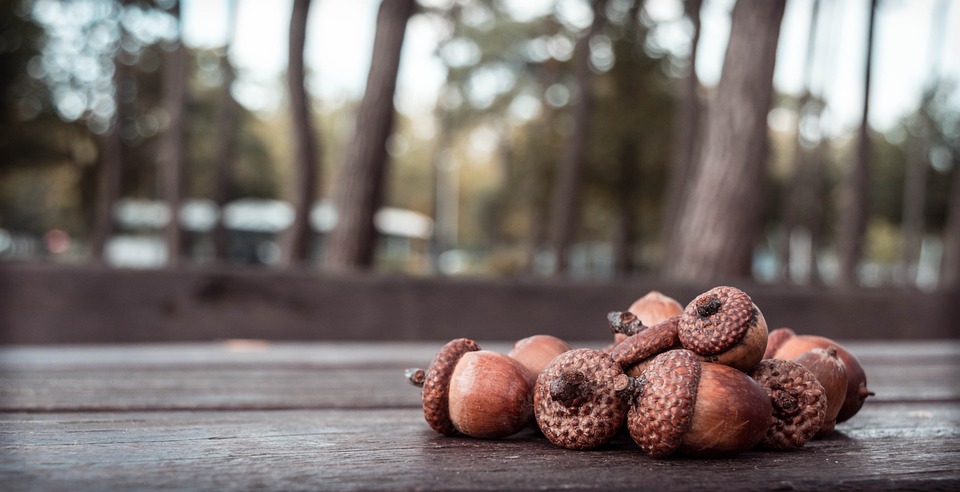
While some bugs are beneficial, many of them can spread diseases. It's also really annoying when they leave itchy bite marks all over your arms and legs.
Follow the tips below to learn how to deal with bugs outdoors. (h/t to Survivopedia.com)
Learn about insect habits
One of the best ways to make the most of your outdoor time is to educate yourself on when bugs are most active. This may depend on where you live, but you can plan some of your outdoor activities when you’re least likely to run into various pests.
For example, it's better to spend more time outdoors in the fall when the weather starts to cool off and you’re not suffering in the heat. If you do head out while it's still hot, you may run into a lot of stink bugs and ladybugs.
While neither bug is harmful, stink bugs can leave an unpleasant odor behind, which can be a hassle if you plan on going back home after your time outdoors.
Spring and summer are the worst for insects. Ants, flies and mosquitoes start to come back in the spring, while spiders, ticks and stinging insects will be wandering throughout summer. These bugs can be dangerous if you get bitten or stung.
Ticks and some spiders can also cause illness or disease.
To avoid bugs completely, spend as much time outside as you can in the winter. But if that isn't possible, plan ahead and learn which types of bugs to expect at certain times of the year.
Bring the right gear
Whether you're planning to go hiking or camping in summer or fall, you must always dress appropriately.
Dress for the season and wear layers in the fall and winter months so you can stay warm. Wearing layered clothes can also help you remain outdoors longer and safely.
If you’re trying to avoid getting bitten or stung by bugs in the spring or summer, learn how your clothes might protect you.
If you’re hiking, wear long pants and tuck the legs into your socks or shoes. This will prevent bugs like ants or ticks from crawling up your leg and biting you.
Wear a tucked-in long-sleeved shirt for the same reason. A cap can also help prevent ticks from falling on your head and hiding in your hair. Alternatively, a full-brimmed hat will protect your head and the back of your neck.
Wear gloves and check your clothing regularly for bugs.
If you're worried about feeling too warm with several layers of clothing, stay cool with lightweight, moisture-wicking clothing.
If you plan to spend the night outdoors, pack the right gear.
You should pack some of these items to protect against bugs:
- Bug gloves
- Bug nets
- A canvas tent
- Insect repellent
Regardless of the duration of your hike, you should always focus on protecting yourself against pesky bugs.
Prepare DIY insect repellents
You can buy different insect repellents online or at the nearest big box store, but it's better to use DIY options to avoid harmful chemicals.
To keep bugs away efficiently, learn which scents deter them. This includes citronella, lemongrass and peppermint. Combine these scents with essential oils to create a natural repellent or use candles around your campsite or backyard to keep bugs from buzzing around.
Skip the sweet-smelling fragrances or anything that might smell like flowers or fruit in your formula because they will attract bugs. (Related: Prepper projects: Make a DIY mosquito trap to protect your family from bites.)
Don't bring bugs indoors
This may seem obvious, but you should check yourself carefully to avoid bringing bugs indoors.
If you spend a lot of time outside, you may sometimes have the occasional insect stuck onto your clothes or climbing into your hair. Avoid opening and closing the door to your home several times a day because insects can fly or crawl in.
Prepare your living space and protect it against bugs by cleaning them regularly. Don’t leave food sitting around, and make sure there are no food or beverage spills in your cupboards and cabinets.
Keep pests like ants outside by sprinkling a line of cayenne pepper around your property. Ants won't cross it.
If you notice more bugs around your home, try natural remedies like garlic, which will repel them naturally.
You can also fill a spray bottle with water and two tablespoons of dishwashing liquid. Spray flying insects as you see them flying by. The solution works because it dries out their exoskeleton and kills them.
Start a fire
You can also fight bugs with fire if the other methods don't work.
A fire can help you stay warm if you are trying to rest in the backyard after a long day at work. You can also start a campfire to keep yourself warm and cook dinner while camping.
If you have ever stood downwind of a burning campfire and gotten smoke in your eyes, the stinging sensation can be painful and make your eyes to water for several minutes. Bugs don't like smoke, either. It masks other scents so if you’re standing near a fire, bugs nearby will probably only pick up on the smoke and not you. This means bugs will be less likely to hang around.
Insects instinctually stay away from flames, since they can not handle the heat.
The smoke and heat create a harsh environment for many insects, particularly mosquitoes. I
Attract the right predators to your garden
If you have a home garden, attracting the right bugs and natural predators can offer benefits.
If you see ladybugs in your garden, leave them alone. Ladybugs eat mites and aphids.
Ladybugs are attracted to dill and fennel, so plant these herbs in your garden to attract them.
Here are other insects that can help protect your garden:
- Dragonflies
- Spiders, while technically not an insect, have dangerous bites
- Tachinid flies
Learn about different insect varieties to find out which bugs are spending time in your garden and if they're beneficial or not.
If you don’t want to attract more bugs to your garden, try other outdoor predators that will eat bugs, like birds, frogs and toads.
Try different methods to control the bug population in your garden. If you plan to spend outdoors, use DIY mosquito repellent and wear layers of clothing to protect against insect bites.
Visit BugOut.news for more tips on how to keep pesky bugs away while you're camping.
Watch the video below for eight plants that will help repel mosquitoes and other insects naturally.
This video is from the Backyard Farming channel on Brighteon.com.
More related stories:
Natural bug repellent: 11 Herbs and flowers that deter mosquitoes.
Anti-mosquito diets: 3 Foods to eat to keep mosquitoes at bay.
How to make DIY non-toxic mosquito repellants with essential oils.
Sources include:
Please contact us for more information.






















